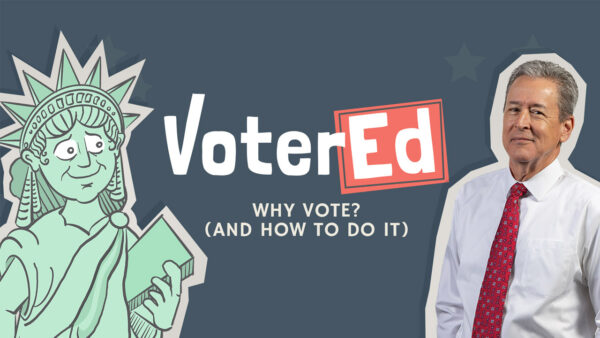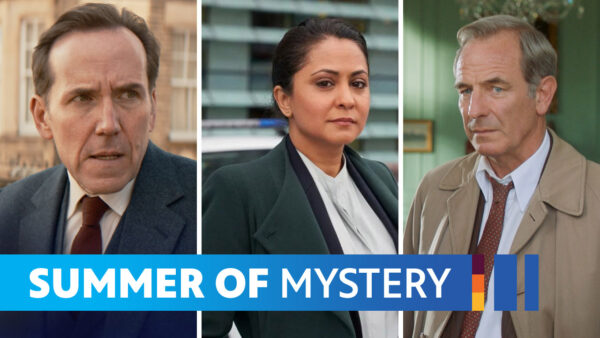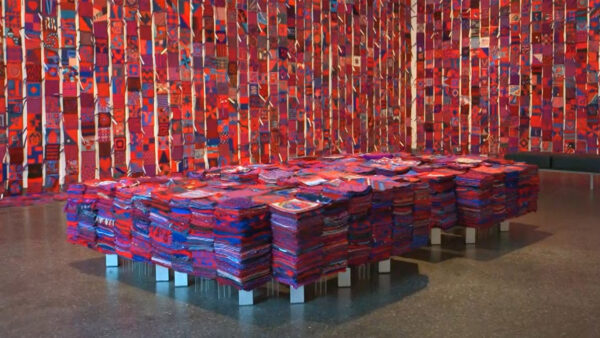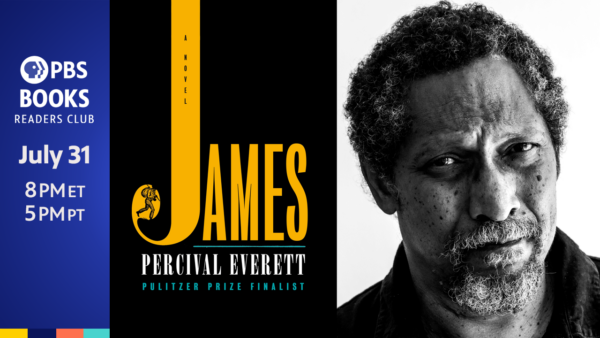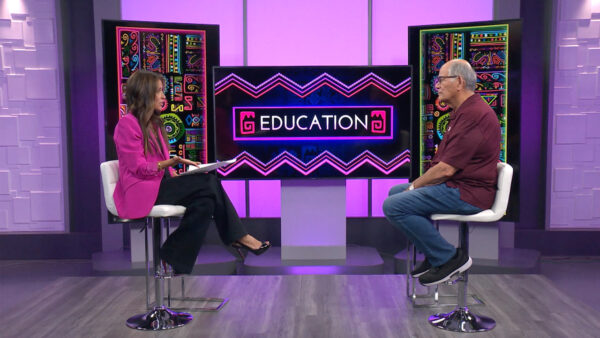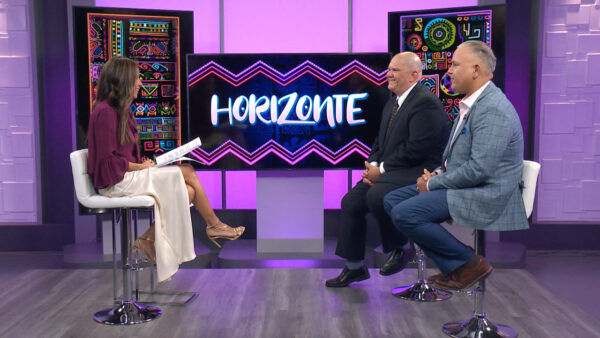The Dr. Martin Luther King Jr. Calvin C. Goode Lifetime Achievement Award recognizes an individual who has made Phoenix a better place through lifelong dedication of promoting social and economic justice. A conversation with Carole Coles Henry, the recipient of the 2013 Calvin C. Goode Lifetime Achievement Award, about her leadership and service to the community.
Jose Cardenas: Thank you for joining us. This week the life of Dr. Martin Luther King, Jr., was honored across the country. Many celebrations took place in the valley. One was the 27th annual awards breakfast. A group of people received awards for their commitment to making society a better place. Carole Coles Henry received the Calvin C. Goode lifetime achievement award. Here's her perspective on being a social worker.
SOT: I'm passionate about social work. I think I was born for this area. I'm Carole Coles Henry. I have been affiliated with the school of social work since 1980. It's probably one of the very few disciplines in my opinion in higher education that includes all other disciplines. I think one of the hallmarks of this institution or not only the students who come here but they are the faculty who use their knowledge and expertise and their background and research and capabilities and their passion for teaching to make this one of the best viable programs I believe in the West Coast. So it's an institution that understands its role beyond the walls of higher education. Helping people to understand once you get to certification you take what you have and go out into society and to the world and make your Mark and you'll leave the world in a better condition than we found it in. We represent the well-being of all people as a profession, and who can argue with that? I say this all the time. Who can argue but that idea that we want to figure out a way to include everybody at the table or give everyone opportunity. Not to give a hand out, just a hand up. It's probably one of the best professions in my opinion anyone can seek out.
Jose Cardenas: As we said earlier there were five other individuals honored with a Dr. Martin Luther King, Jr., living the dream award. Ervin Cutright, Kenja Hassan, Lin Ling Lee, Lakhwinder Singh Rana Sodhi, and Robert L. Williams congratulations to them as well. Joining me is Carole Coles Henry, recipient of the Calvin C. Goode lifetime achievement award. Thank you for joining us. Before we get into some of the specifics of the award, maybe more of an elaboration of your views as a social worker, give us your background.
Carol Coles Henry: I moved to Phoenix in 1980. I had a 27 year career history with the city of Phoenix. I retired as opportunity director in 2007. I'm the great granddaughter of slaves in Virginia, the Coalfield farm in Virginia, a plantation. Still exists to this day. My parents raised us in Pittsburgh, Pennsylvania, as people to strife towards getting your education. One of the things that was important in our family, you now you were going to go to college at a young age. So as a young person I always was interested in community. About the age of 13, when Dr. King died, April 4, 1968 was a very tough day in society throughout the United States and in my city. I remember looking out the window seeing the only store in my neighborhood burn to the ground. I liked those people. They were Asians. I would speak to them every day coming home from school. I vowed through Dr. King's death, the marches as a young person vowed to use my life to make a difference for other people. To fast forward to moving to Phoenix as a 25-year-old change agent, graduated from the University of Pittsburgh, I had my social work master's degree in one hand and my bachelor of education in the other. I vowed to make a difference in this community. I'm honored to receive the Calvin C. Goode lifetime achievement award. He was my mentor, opened many doors for me and others in this community and left an incredible everlasting contribution whether it was through the headstart programs or the work enforcement programs, the Carver museum. To just have the opportunity to be mentioned in the same sentence as Dr. King and councilman Goode is extremely humbling for me.
Jose Cardenas: we have had the honor of having councilman Goode on our show. The low me ask you before we get into the specifics of the award, in the video you said that social work was the best profession. You went and lived that. Can you elaborate? Why do you think that is the case?
Carol Coles Henry: There's a code of ethics social workers live and work by. At the University of Pittsburgh where I graduated, they told us that social and economic justice were the preambles of the code of ethics for the national association of social workers. I felt that I was given a platform and had the responsibility to take that education which enabled me to come to Phoenix and to find a place where I could make a contribution to not only up lift communities that I worked in but to up lift people of color, women, the disabled, veterans, the down trodden, individuals of society. Social workers work in hospitals, we work in high schools. We're represented in terms of working in government agencies, youth centers, and the list goes on and on. Corporate entities. So some people are judges who started off with their degrees in social work. It's the backbone of anything you want to do in life. Through the affiliation and working with Arizona State University's community advisory board which I chair, we worked collectively with the school to hopefully identify additional ways to reach out to the community and share with folks that the social work profession is a growing profession. More veterans are coming back from the war and they need counseling. We have growing populations of the elderly. We need to ensure we have people prepared with the education to walk in and make the contributions to society.
Jose Cardenas: you told us in the video you were inspired or actually in your opening comments to get involved and to dedicate your life because of Dr. Martin Luther King. Now you get the award. What specifically was the basis for the award?
Carol Coles Henry: It's ironic. This award was established and created in an area I used to work in at the city of Phoenix, human relations. These were established to provide recognition to individuals upholding the tenets of Dr. King's dream of having a society where people were making contributions to up lift others, promoting civil rights within communities, individuals who not only were walking the -- talking the talk but walking the walk. Since 1988, early '90s, the individuals that have been recognized, the list is incredible. 6 For me to be mentioned in the same context is very humbling to me.
Jose Cardenas: There are other obvious connections with the award, this particular award this year. Barack Obama was sworn in for his second term. He used a Bible that had belonged to reverend king. What do you think is the significant of Martin Luther King today, many years after his death, and in the context of the inauguration of Barack Obama?
Carol Coles Henry: I went back and looked at his speeches, what he talked about. Dr. King is the gift that keeps on giving. He really gave us an incredible library of speeches and information in the contributions he made whether it was the marches in Alabama, Georgia, looking toward his work and talking about the Vietnam war. One of the things he talked about was -- it was a quote I used at the breakfast. It was something that really touched me personally that I live by. It was in the ends, what matters most is not the words of our enemies but the silence of our friends. He called us all friends. We all collectively are friends. If we see an injustice in society we have a responsibility to address that and to up lift all people. Also the part of him discussing the silence that's deafening. When we who are agents of change, you don't have to be a social worker to be an agent of change. You're an agent of change, young people in the community are agents of change. 7 We have a responsibility to speak up, to use our voices. Once we speak Dr. King said we must have a record of profound action. The two go hand in hand.
Jose Cardenas: that point, now that we have not only elected once but twice a black president, is Martin Luther King's message still relevant? Is there more left to be done?
Carol Coles Henry: There's so much work left to be done. To celebrate Dr. King's memory on the inauguration day of president Barack Obama is just incredible. A lot of what he talked about in his speech related to the constitution and the discussion about we, the people. He talked about justice, to ensure that we have a society that is aware of the blessings that we should have for other people. He talked about equality for all people. That theme of the president's relates specifically to the dream of Dr. King, and so the two actually melded together and they go hand in hand. Based on all of the challenges that we have in society, the job is just not done. The end is not here. It's a comma, not a period. We have a lot of work to do in society whether we talk about the affordable health care issues, voter suppression, if we talk about access to affordable housing, overrepresentation of minorities in the justice system, the list goes on and on. What's happening around immigration policy reform, if we think that it's a period, that Dr. King's work once he did it was done, it's a period, we got it wrong. It's a comma. It continues. Society continues to evolve. The needs continue to need to be addressed.
Jose Cardenas: Even though theoretically you're retired but you continue to be active in your community. Thank you for joining us.
Carol Coles Henry: Thank you.
Carole Coles Henry:Recipient, 2013 Calvin C. Goode Lifetime Achievement Award;
